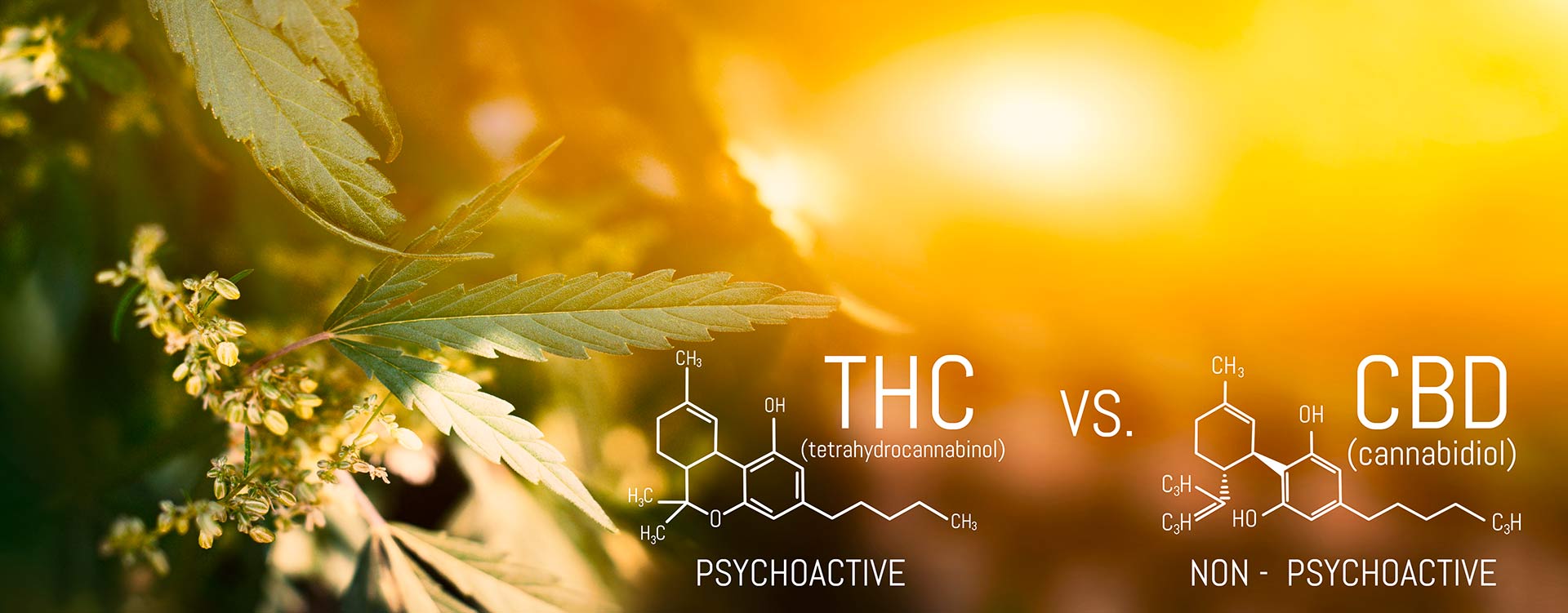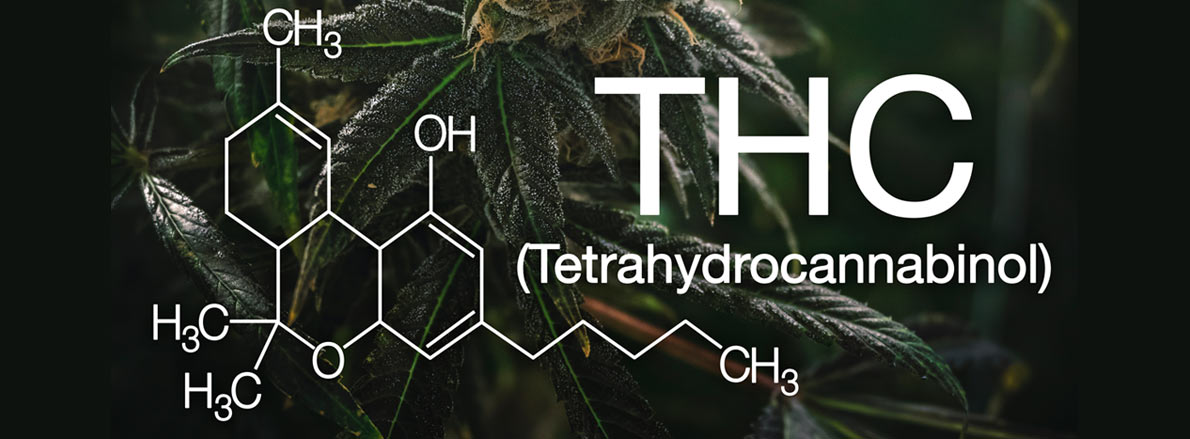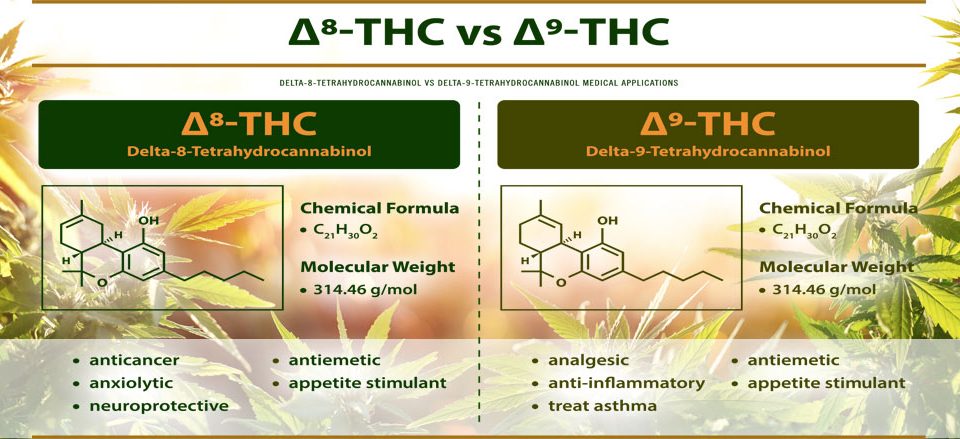What Is Delta 9 THC?

Delta 8 THC vs. Delta 9 THC
July 5, 2022The cannabis industry continues to grow rapidly. In particular, the hemp industry has become a powerhouse for alternative psychoactive cannabinoids that are federally legal. But with all this new development , there is a slew of misinformation out there which can cause confusion among consumers.
Understanding the difference between each cannabinoid can be difficult. That's why, in this post, we'll look at THC, specifically, Delta 9 THC, one of the major cannabinoids, and the differences between THC & CBD.
What Is Difference Between CBD and THC?
Companies in the hemp-derived cannabinoid industry tend to speak in general terms about CBD and THC, which oversimplifies the many THC and CBD molecules found naturally in cannabis.
CBD, cannabidiol, is a cannabinoid that typically does not have any psychoactive effects for most users. CBD has been known to have numerous benefits including being used as an anti-seizure medicine and having anti-anxiety and pain relieving properties. CBDA is the precursor to CBD, and is created through biosynthesis of plant enzymes. The cannabis plant naturally produces CBGa which then converts to either THCa, CBCa or CBDa. From CBDa, CBD is formed through decarboxylation. CBDa is being studied by the scientific community and is believed to have anti-nausea and anti-depressant benefits. CBDv is a derivative of CBD with the only difference being a slight change in molecular structure. CBDv provides many of the same benefits of CBD and is being studied by GW Pharmaceuticals as an anti-epilepsy medicine.
THC, is the most widely studied cannabinoid and loved for its therapeutic and psychoactive/psychotropic effects. THC was once villainized due to misconceptions about getting high, but today's scientific researches has turned would be naysayers into users of this cannabinoid. What few people know is that THC comes in several forms including Delta 8 THC, Delta 9 THC, THCa and many more.
THCa, for example, is the most abundant, non-psychoactive tetrahydrocannabinol component present in the marijuana plant. THCa is a neuroprotectant and is being used in treatment of Alzheimers, Parkinson's and MS. THCa is mainly consumed using raw plant material, mainly through juicing cannabis leaves.
Delta 9 THC, (∆9-THC) is created when THCa undergoes decarboxylation. THC stimulates the release of a neurotransmitter called dopamine in the brain, which is what causes feelings of euphoria or being "high". First time users should ease into THC products. Too much ∆9-THC can cause anxiety, paranoia and an increase in heart rate. That is why it is important to follow recommended serving sizes on all THC products.
Delta 8 THC (∆8-THC) is very similar in molecular structure to ∆9-THC with exception of the placement of a double bond on the carbon chain of atoms. The placement of this bond has a significant impact on cognitive changes and physical effects for users. ∆8-THC produces more mild effects than ∆9-THC and is an excellent choice for people looking for slight euphoria and low anxiety experiences. Both ∆8 and ∆9 derived from industrial hemp are legal under the 2018 Farm Bill.

Delta 9 vs. CBD
CBD took the natural health community by storm a few years ago. While CBD regulation was controversial in some areas, research shows that it is an effective treatment for various conditions. Better still, CBD has none of the psychoactive effects like other cannabinoids because of its chemical structure.
There is, however, a small downside to CBD. Cannabidiol is a powerful relaxant, but it's not as effective by itself for pain relief as it is when combined with THC. Pharmacology studies show that when CBD and THC work together synergistically, the result is more effective at relieving chronic aches and pains.
Where Is ∆9-THC Available?
Hemp derived ∆9-THC products are available online and in many stores across the United States. Marijuana dispensaries also sell ∆9-THC but you typically need a medical card to purchase or you have to be in a recreational licensed state like Nevada and Colorado. The federal government still considers ∆9-THC a controlled substance and not suitable for recreational use.
How Does ∆9-THC Work and How Long Do Its Effects Last?
All human beings have an endocannabinoid system (ECS) in the body. This system consists of two main types of cannabinoid receptors – CB1 and CB2. CB1 receptors reside primarily in the brain and central nervous system, while CB2 receptors are found in the peripheral nervous system, mainly immune cells.
These special cells control many functions in the body. For example, they regulate emotions, enhance concentration, and help your immune system to fight disease. THC acts as an agonist or activator of these receptors by binding to them resulting to increase levels of dopamine and other chemicals. Effects from ∆9-THC depend on where the cannabinoid affinity takes place. Meaning a cannabinoid binding to a CB1 receptor in a spinal nerve will help relieve pain. But THC binding to a CB2 receptor may signal the body to help fight inflammation.
How long the effects from THC last depend on your physiology and chemical make up. You will typically experience the effects from THC from two to four hours. Edible THC products can take up to 2 hours to take effect for some users. After the psychoactive effects wear off, long term benefits to your endocannabinoid system remain.
The Benefits of Delta 9 THC
The medical and social benefits of THC are widespread thanks to the extensive range of CB1 and CB2 receptors throughout the bod. Scientific research agrees with anecdotes from everyday users about the advantages of using THC:
- Stimulates appetite
- Reduces Nausea
- Has high-potency analgesic properties and treats all levels of pain
- Protects the nervous system and brain
- Improve mood disorders
- Less anxiety
- Creates positive social settings
- Treats insomnia
Side Effects of Delta-9 THC
As with too much of anything, there are potential side effects to be aware of when consuming THC. Here is a list of some common side effects:
- Dizziness
- Cottonmouth (dry mouth)
- Increase in appetite (the munchies)
- Bloodshot eyes
- Paranoia and anxiety
- A racing heartbeat
- Hallucinations, (rarely)
- Dependency
The chance of side effects depends on the amount of THC consumed. The more you take, the more likely to see one or more of these side effects. Therefore, to remain safe, start with a low dose. Then, increase your dose if you wish to produce a more profound effect.
High doses of THC are only for experienced users. Should you experience negative effects from ingesting too much THC, taking CBD can counteract the negative effects.
THC Product Types
Now that you understand more about the efficacy and potential side effects of Delta 8 and 9, let's examine the product types.
THC Flower
The buds or flowers of hemp or cannabis contain the highest cannabinoid and THC concentration. For people looking to smoke THC Flower, the best option is smoking the dried bud or the flowers of the plant. Dried flowers can also be added to edibles and used to make cannabutter or infused oil. For those looking for high THC flower, hemp flower is not for you and unfortunately high THC flower can only be sold/purchased in dispensaries. So if you are in a legal state, you are in luck. But if you are in non-legal state, you may have to resort to old school methods to find that flower.
THC Extracts & Edibles
Cannabinoid manufacturing labs extract oil containing THC along with terpenes, flavonoids and other cannabinoids. These oils are full spectrum oils and many experts consider this THC oil to have the highest medicinal value along with full spectrum CBD oil.
In addition to full spectrum THC oil, THC distillate or isolate is available which contains mainly THC with very small amounts of minor cannabinoids and very little terpenes. Isolates and distillates allow manufacturers to create specific cannabinoid profiles for products. For those people looking for THC free products, broad spectrum CBD distillate and/or isolate may be a good option.
THC edibles include food, baked goods, gummies, and drinks. The market for edibles has exploded over the last few years, so now you can find THC and CBD in hundreds of products.
Will Delta 9 Show Up in a Drug Test?
Yes, if you use it regularly. The tests detect THC metabolites rather than the cannabinoids themselves. While the effects of the drug wear off within a few hours, the metabolites remain. Our bodies store them in the fat tissues, and so tests can detect them for weeks afterward.
Is Delta 9 THC Legal According to the DEA?
Technically, marijuana and THC are considered Schedule 1 drugs. The federal government, therefore, views it as illegal. However, legality here is a gray area because some states allow the recreational and/or medical use of cannabis. So, before making a cannabis or 9 THC purchase, check your States legal status surrounding cannabis.
If you live in the below States, you may be eligible to purchase recreational or medical THC:
- Arizona
- Alaska
- Colorado
- California
- Florida
- Illinois
- Massachusetts
- Maine
- Montana
- Michigan
- New Jersey
- Nevada
- New York
- New Mexico
- Oregon
- South Dakota
- Virginia
- Vermont
- Washington, DC
- Washington
In some states, you may buy cannabis or 9 THC for medical reasons. The usage and sale of these cannabinoid products are, however, strictly regulated. You'll need a prescription, a medical card, and a legal dispensary to buy any THC or cannabis.
Where to Buy Delta 9 THC?
In states where cannabis or THC is legal for recreational purposes, you can find it in stores and online. If you live in a state where cannabis is illegal, you may have a tougher time finding it. Be careful when purchasing cannabis products that are produced without safety and oversight...know your dealer!
We recommend purchasing products that are created in a controlled environment and are third-party lab tested. Products testing should show not only potency, but also show results for pesticides, microbial contamination, molds, heavy metals and residual solvents.
Delta-9 Pro is your trusted source for ∆9-THC products. Contact us today with questions you might have about Delta 9 THC. Our knowledgable team is ready to answer your questions. Thank you for reading.
- What Is Delta 9 THC? - July 5, 2022
- Delta 8 THC vs. Delta 9 THC - July 5, 2022


